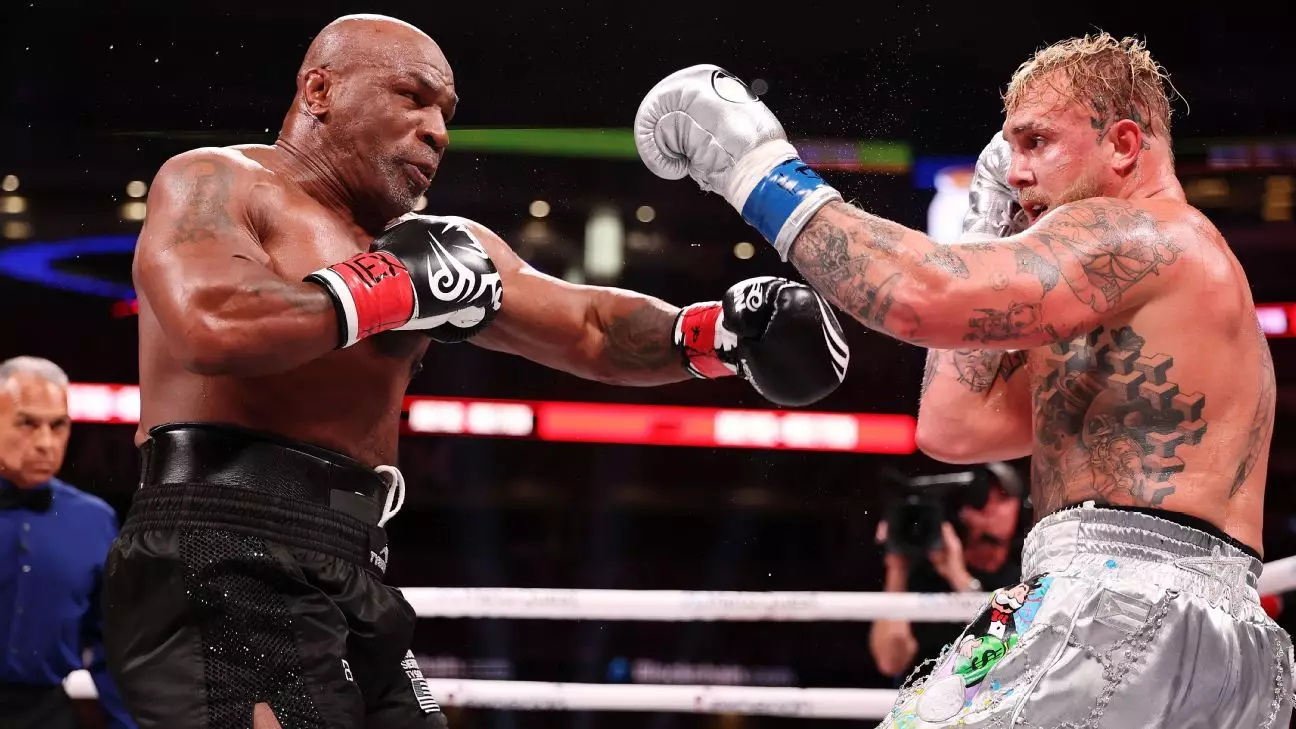In the world of boxing, where traditional metrics often determine legacy, Jake Paul’s unorthodox approach is reshaping perceptions. The 27-year-old social media influencer-turned-boxer has sparked intense debate regarding his legitimacy as a fighter. Yet, the substantial financial success of his recent match against Mike Tyson reveals a striking reality: Paul has transitioned from a YouTube persona to the principal draw in modern boxing. The dramatic event at AT&T Stadium, where Paul marked a unanimous decision victory over the legendary heavyweight, brought in more than just headlines—it redefined the financial landscape of combat sports.
Paul’s match against Tyson is noteworthy not just for the fighters involved but for its historical success. Bringing together over 72,300 spectators, the event shattered records, accumulating an astounding $18.1 million in revenue, making it the most lucrative gate for a combat sports event outside of Las Vegas. This achievement contrasts sharply with the previous Texas record held by Canelo Alvarez and highlights Paul’s capability to engage audiences in unprecedented ways. The implications of this success resonate beyond the ring, contributing to market dynamics, as evidenced by the consequent 2.8% rise in Netflix stock following the event.
A pivotal player in the event’s success was its streaming platform. Netflix, leveraging its vast audience, ventured into the realm of live sports with Paul vs. Tyson, attracting viewership from an impressive 60 million households. While technical difficulties marred the experience for some, the interest generated underscores a significant shift in how audiences consume sports. As Netflix prepares for further sports events, including a highly publicized halftime show featuring Beyoncé, the merging of entertainment platforms with traditional sports confers a dynamic edge to both sectors.
The success of the Paul-Tyson matchup has opened a new chapter not only for Paul but for the sport itself. Nakisa Bidarian, co-founder of Most Valuable Promotions, aptly noted that the event “rewrote the record books,” affirming the potential of promotions that combine mainstream entertainment with athletics. This trend not only draws in die-hard boxing fans but also captures the interest of casual viewers and those enamored with celebrity culture. Paul and Tyson’s appeal reaches across demographic lines, indicating a transformative effect on how boxing events are marketed and consumed.
Looking Forward: The Future of Combat Sports
As this new era unfolds, the confluence of celebrity culture and sports entertainment suggests that the future of boxing may lie in embracing unconventional figures like Jake Paul. His ability to drive massive attendance and viewership raises questions about old-school approaches to boxing promotions. With events avidly streamed and celebrities attracted to the sport, the boxing community faces a turning point, one that may redefine what it means to be a boxer in the contemporary era.
Ultimately, Jake Paul’s journey from influencer to boxing kingpin challenges conventional wisdom, suggesting that in today’s rapidly changing world of sports, adaptability and engagement might outweigh traditional accolades. The question now remains: can this shifting paradigm sustain itself, or is it merely a flash in the pan? Only time will reveal the longevity of this remarkable transformation in combat sports.


Leave a Reply